Analyzing the causes of slow and evasive social insurance payments, Minister Dao Ngoc Dung said that recently, businesses have encountered many difficulties due to lack of orders; meanwhile, the insurance management agency has not fully managed the subjects, managed and used them ineffectively, applied information technology, and connected the database poorly.
Minister of Labor, War Invalids and Social Affairs Dao Ngoc Dung answers questions from National Assembly deputies. (Photo: DANG KHOA).
On the morning of June 6, the National Assembly conducted the first group of questions on issues related to labor, war invalids and social affairs. Among them, the issues related to one-time withdrawal of social insurance, late payment, evasion of social insurance payment, etc. were questioned by many National Assembly deputies.
It is necessary to amend the Law on Social Insurance in the direction of increasing the benefits of contributors.
Explaining the issue of one-time social insurance withdrawal, Minister of Labor, War Invalids and Social Affairs Dao Ngoc Dung said that before 2019, the average number of one-time social insurance withdrawals per year was about 500,000; by 2023, this number will increase to 900,000.
"If the situation of one-time insurance withdrawal does not decrease, there is a risk of difficulty in ensuring social security for the elderly and people of retirement age, and the social security policy system will find it difficult to ensure sustainability," the Minister stated.
Discussing the causes of this situation, the Minister emphasized that first of all, the income of workers is low, the mechanism for withdrawing social insurance at one time is too easy, while international practice only allows withdrawing social insurance at one time mainly in two cases: one is having a terminal illness, the other is moving to settle abroad.
“Article 60 of the 2014 Social Insurance Law (effective in 2016) is very humane, stipulating four contents for one-time insurance withdrawal. But then, when the law had not yet come into effect, we issued Resolution 93/2015/QH13 allowing one-time insurance withdrawal, anyone in need can withdraw,” said Minister Dao Ngoc Dung.
In addition, the benefits of withdrawing social insurance at one time are high, leading to many cases where people do not want to withdraw but see better benefits, so they withdraw, and then participate again after a while. The Minister said that currently, about 1/3 of those who withdrew insurance have returned to continue paying social insurance.
Minister of Labor, War Invalids and Social Affairs Dao Ngoc Dung answers questions from National Assembly deputies. (Photo: DANG KHOA).
Another reason is that the propaganda work on this issue has not been really effective. The Minister cited an example in Ho Chi Minh City, for every 10 people who withdraw insurance once, 6 people are persuaded not to withdraw again, which shows that if propaganda work is done well, it will contribute to reducing this situation.
According to the Minister, to solve the problem of one-time insurance withdrawal requires many related solutions, especially creating jobs, stable income for workers, and adjusting policies accordingly.
In particular, it is necessary to amend the Law on Social Insurance in the direction of not limiting rights but increasing benefits for contributors. At the next session, the National Assembly will discuss different options to have the most effective regulations to handle the issue of withdrawing social insurance at one time.
Apply stronger sanctions against late payment and evasion of social insurance payments
Regarding the issue of late payment and evasion of social insurance, the Minister said that by the end of 2022, the situation of late payment and evasion of payment, both interest and principal, was VND 8,560 billion, an increase of about 2.69% compared to the level of 2021; there were 26,670 enterprises and units that were late in paying and evading social insurance.
In recent times, the Ministry of Labor, War Invalids and Social Affairs has adjusted and implemented solutions to ensure the rights of the subjects. Up to now, the subjects participating in insurance whose regimes and policies have been affected have been fundamentally resolved.
Analyzing the causes of this situation, Minister Dao Ngoc Dung stated that recently, businesses have encountered difficulties due to lack of orders, insurance management agencies have not fully managed the subjects, ineffective management and use, poor application of information technology, and poor database connection.
Delegate Ma Thi Thuy ( Tuyen Quang delegation) asked questions about the situation of late payment of social insurance. (Photo: DANG KHOA).
To overcome this situation, the Ministry has deployed specific measures, implementing the principle that policies are implemented to the extent that workers collect.
In the long term, the Minister believes that it is necessary to amend the Law on Social Insurance. These contents are also presented in the draft Law on Social Insurance (amended) submitted to the National Assembly at the October Session, which will clearly define the concept and scope of acts of late payment and evasion of social insurance payment, and apply a number of stronger, more resolute and effective sanctions against these acts in accordance with international practice.
“Payment evasion is currently regulated by law, even criminally, but the concept and scope are not clearly defined so it has not been handled. For example, Ho Chi Minh City has 84 petitions that must be transferred to the investigation agency but have not been handled due to problems,” the Minister added.
In addition, the Minister emphasized the need to apply some stronger, more resolute and effective sanctions against this behavior as allowed by international practice. For example, suspending invoices for a period of time, even some countries suspending the departure of employers who are late in paying or evading social insurance.
According to: nhandan.vn
Source link


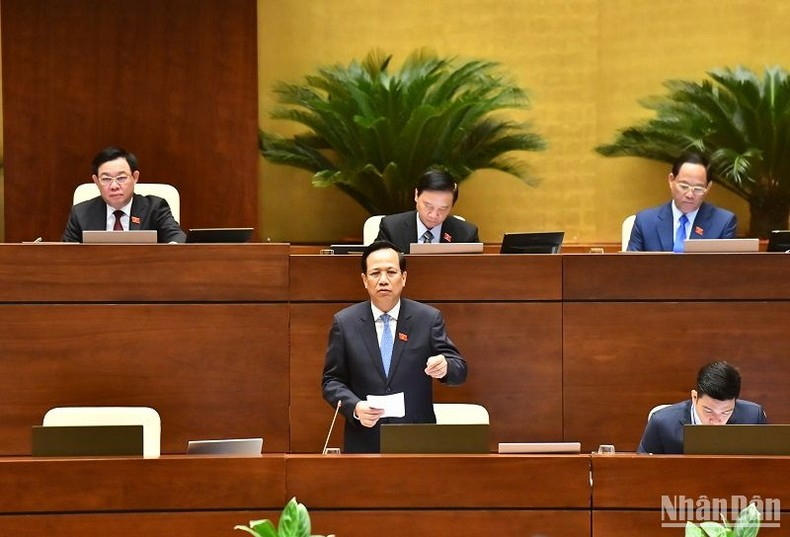





![[Photo] Cutting hills to make way for people to travel on route 14E that suffered landslides](https://vphoto.vietnam.vn/thumb/1200x675/vietnam/resource/IMAGE/2025/11/08/1762599969318_ndo_br_thiet-ke-chua-co-ten-2025-11-08t154639923-png.webp)

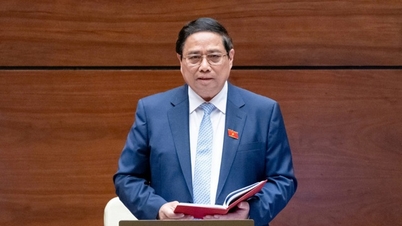

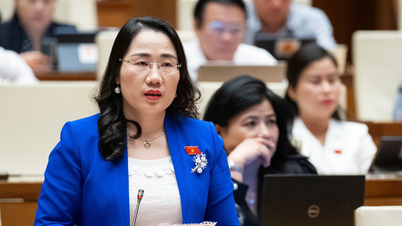

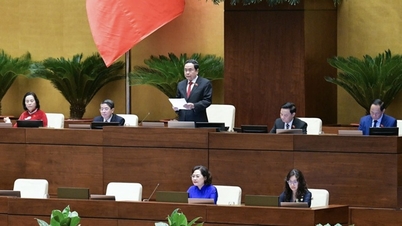
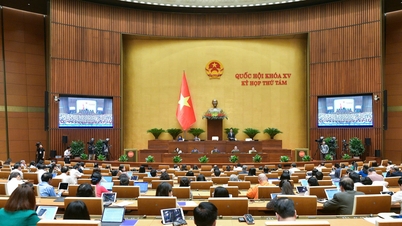




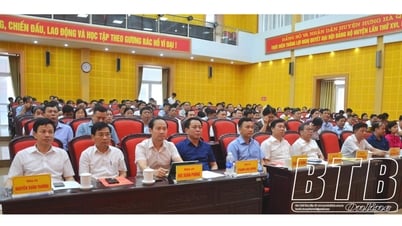








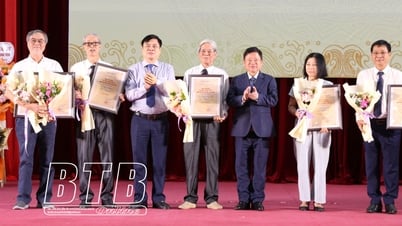
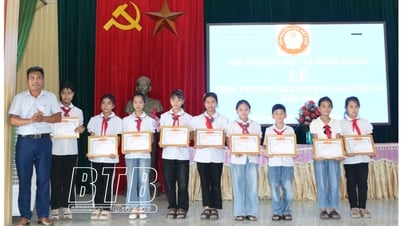
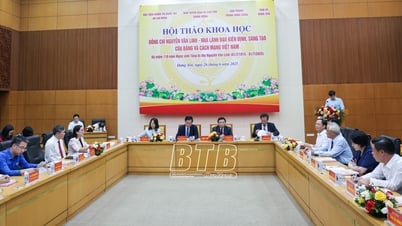









![[Video] Hue Monuments reopen to welcome visitors](https://vphoto.vietnam.vn/thumb/402x226/vietnam/resource/IMAGE/2025/11/05/1762301089171_dung01-05-43-09still013-jpg.webp)



































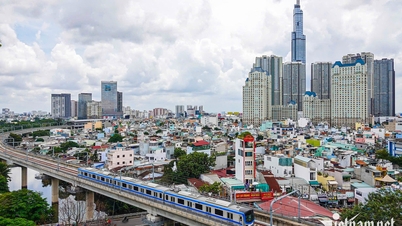











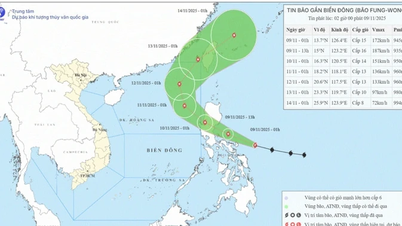

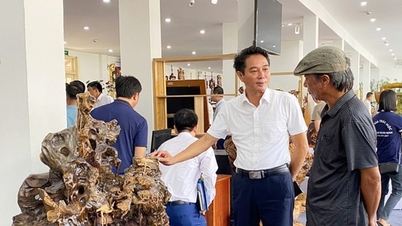


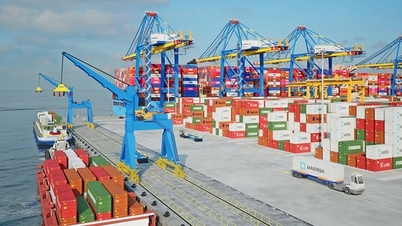


















Comment (0)